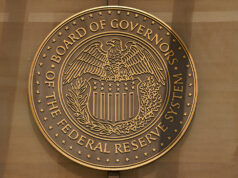Fed’s Williams calls for strong policy response if inflation deviates from target

TOKYO — New York Federal Reserve President John Williams said on Wednesday central banks must “respond relatively strongly” when inflation begins to deviate from their target.
Given high uncertainty around the economic impact of US tariffs and trade policy, central banks should focus on avoiding taking steps where the “cost of getting it wrong far outweighs the benefits,” rather than aiming for the perfect solution to the problem, he said.
Among the costly risks central banks must avoid are to allow inflation expectations to deviate from their targets, Mr. Williams said in a fireside chat with Bank of Japan Deputy Governor Ryozo Himino at the central bank’s conference held in Tokyo.
“You want to avoid inflation becoming highly persistent because that could become permanent,” Mr. Williams said. “And the way to do that is to respond relatively strongly” when inflation begins to deviate from the central bank’s target, he added.
Williams said shocks typically do not have long-lasting effects on inflation as long as inflation expectations are well anchored. But he warned there was always uncertainty on how supply-side shocks, such as those caused by the COVID-19 pandemic, could affect public perceptions on future price moves.
“Uncertainty has risen pretty significantly,” he said “We have to be very aware that inflation expectations could shift in any way that could be detrimental.”
Given such uncertainties, central banks must strive to not just anchor long-term inflation expectations, but ensure shorter-term expectations are “well behaved” so that public perceptions of future price moves emerge back towards central bank targets “within several years,” Williams said.
US President Donald J. Trump’s sweeping tariffs and erratic trade policies have complicated central bankers’ task of keeping inflationary pressure in check, without cooling too much economies already facing the damage from higher levies.
The Fed has kept its policy rate unchanged at 4.25%-4.5% since December, as officials pause for more clarity on the economic and price impact of Trump’s tariffs.
Policymakers are also having to grapple with volatile market moves caused by Mr. Trump’s on-and-off comments on US trade negotiations with other countries.
While global financial markets experienced “huge shocks” and volatility in April after Mr. Trump’s announcement of sweeping reciprocal tariffs, they did not see a “dissolution,” Mr. Williams said.
“One of the things you definitely saw in April was a lot of flow between buyers and sellers,” which was a sign markets were functioning, he added.
The level of reserves in the US is “clearly abundant” judging by many metrics the New York Fed monitors, and serves as a buffer against unforeseen shocks, Mr. Williams said.
“When you get big shocks and you’re seeing unanticipated shocks, it’s really nice that there’s a buffer” that absorb the market ramifications, he added. — Reuters



